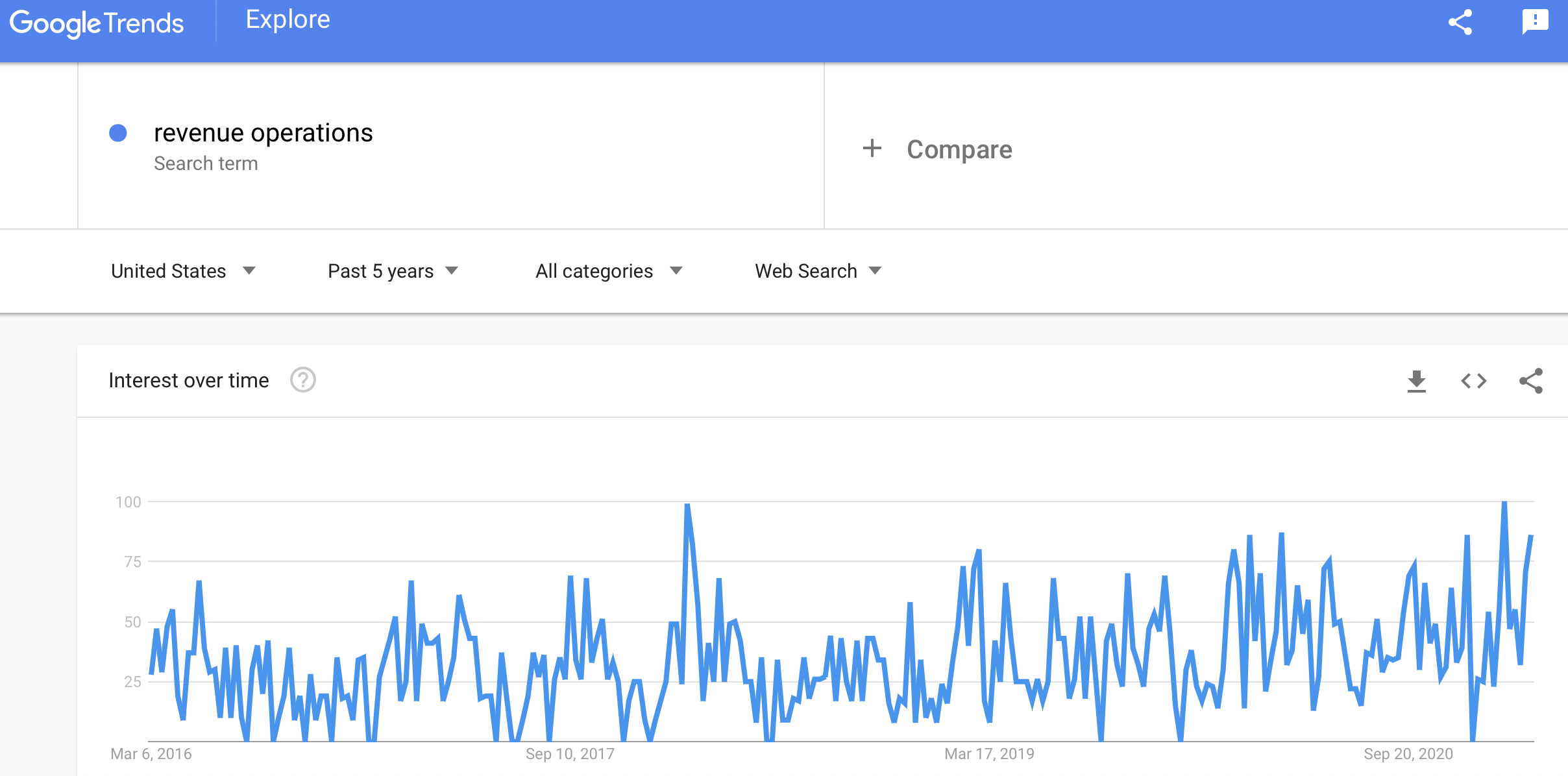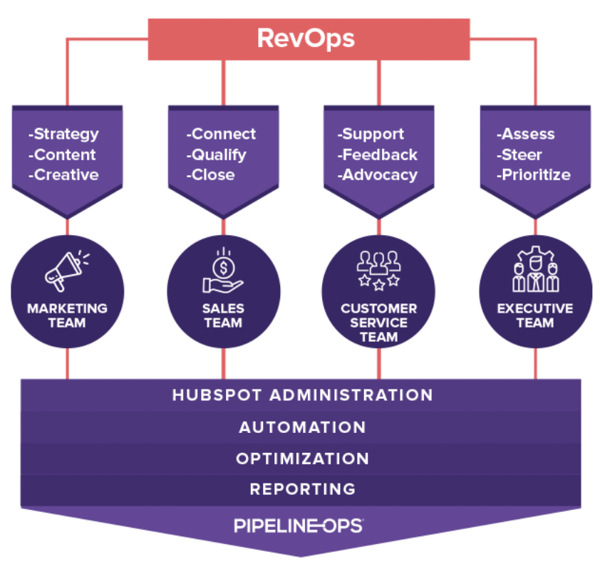The concept of revenue operations is not new, but its popularity is on the rise as more and more companies seek to align their sales, marketing, and customer services functions to maximize revenue and performance. According to research from Forrester, public companies that successfully deployed revenue operations had 71% higher stock performance than their counterparts.
Given statistics such as these, it’s not surprising that the term “revenue operations” is climbing in search engine data results.

As more companies and executives take advantage of the tremendous potential of a dedicated revenue operations role, it becomes increasingly important to understand where precisely this function belongs within a business. More specifically, let’s discuss if the revenue operations specialists in your company should have a seat at the management table.
Revenue Operations Explained
Revenue operations is the team, data structure, and processes within your organization that allows:
- Your marketing team to be marketers
- Your sales team to be salespeople
- Your customer support team to be customer service people
- Your executive team to be executives

In other words, revenue operations is the operational infrastructure (starting with data, automation, and productivity tools) that enables each department to do what they do best.
Strategic vs. Tactical Business Operations
Based on my experience of working in the revenue operations space for the past few years, I can tell you there is a big push among revenue operations specialists and consultants and software providers to have revenue operations seated at the management table.
This push reminds me of earlier in my career when I worked in the community management software arena. I worked with a lot of community managers, user group managers, and member managers.
These community managers wanted a seat at the management table to help make and be part of company decisions because being able to disseminate information to your community and keeping your customers/prospects/members engaged is the fuel behind much of a business’ growth.
However, community management is still seen as a tactical function by most executives. Now that I see revenue operations specialists, consultants, and software providers making a similar push to get a spot at the strategic level, it doesn’t make much sense to me.
Just like community management and community engagement is the fuel behind business growth and getting your message heard, revenue operations is the fuel behind having your business operate smoothly, being able to make accurate decisions based on data that you trust, and having processes that people can follow. Like community management, revenue operations is not a strategic business growth function, it's more of a tactical business growth structure.
Revenue Operations' Place in Your Business Model
When you move forward with a clear understanding and appreciation for the value of revenue operations as a tactical business strategy, fitting this function into your current business model becomes of utmost importance.
With that being said, I'm going to share what might be an unpopular opinion among the rev ops community:
Revenue operations should not have a seat at the management table.
Revenue operations specialists are not business strategists. They are systems strategists, data strategists, and process strategists. They need to be the people standing behind the business strategists at the management table. They need to be able to fully internalize what the business strategy is. Then, they should plan and execute that strategy across all departments using all available systems from a data, process, and adoption perspective.

RevOps specialists aren’t the ones making the decision; they need to understand what the decision is. They need to give feedback. Most of the time, they're also the crystal ball in the organization that says, “Management team, if you make this decision, then it's going to cause problems in nine months when this other thing happens or it's not going to play well with one of our existing systems.”
Revenue Operations in Your Business Takeaway
After your business decisions and strategic direction is laid out by your managers/executives, they need to turn to the revenue operations team and say, “Does this make sense to you?,” or “What is the most efficient, long-term way to implement this strategy?”
Your RevOps partner or specialist should then give the thumbs up, adjust it, tweak it, and/or make recommendations. But they don't need to be at the executive table, making the decisions for how to steer and grow your business.
The bottom line is, no business strategy gets approved or executed without the revenue operations team, but they're not the people developing the business strategy.
When my revenue operations consulting company works with other companies, we are their revenue operations arm. We tell our clients upfront that it is your strategy and your company. You make the decisions. We review them and collaborate to optimize them. We make recommendations and make sure that they come to fruition. This is what revenue operations is all about and when this function is appropriately placed and executed within your business, the opportunities are endless. 

